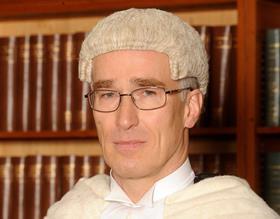A judge was wrong to order a defendant pay a £1m security before late evidence could be admitted, the Court of Appeal has ruled.
Lord Justice Males said Richard Salter QC, while sitting as a deputy high court judge in the commercial court, ‘lost sight of the caution’ that the court should exercise before making such an order.
Salter J adjourned an application by the claimant for summary judgment after the defendant tried to enter a witness statement four days before the trial in Gama Aviation (UK) Ltd v Taleveras Petroleum Trading DMCC.

The judge proposed the £1m security to show the defendant was ‘not simply playing for time’. The sum amounted to more than 90% of the principal sum claimed.
The defendant's lawyer had told the court the money could not be paid and the application for summary judgment should proceed, but the judge had insisted the order should stand.
On appeal, the defendant argued the judge was wrong in principle to require a payment - for almost the full value of the claim - that it could not make, without being able to give evidence about its ability to pay.
The claimant resisted the appeal and supported the judge’s reasoning as a discretionary case management decision. The appeal court had heard the defendant had previously not acknowledged service of the claim by the due date, then did not serve any defence once it had acknowledged service.
Males LJ accepted that the judge had acted to try and admit the witness statement if possible. But he said the court needed to exercise caution before making a conditional order requiring a defendant who might have a good defence to provide security for all or most of the sum claimed. It was ‘incumbent’ on the judge to give the defendant a reasonable opportunity to explain why it could not comply.
Males LJ added: ‘Without giving the defendant an opportunity to address the merits of the summary judgment application, the judge was not in a position to reach a view that judgment for the claimant was ‘inevitable’ or that the defendant was ‘playing for time’.’
The £1m order was set aside and substituted for an order that the defendant has permission to rely on the late witness statement.



























3 Readers' comments